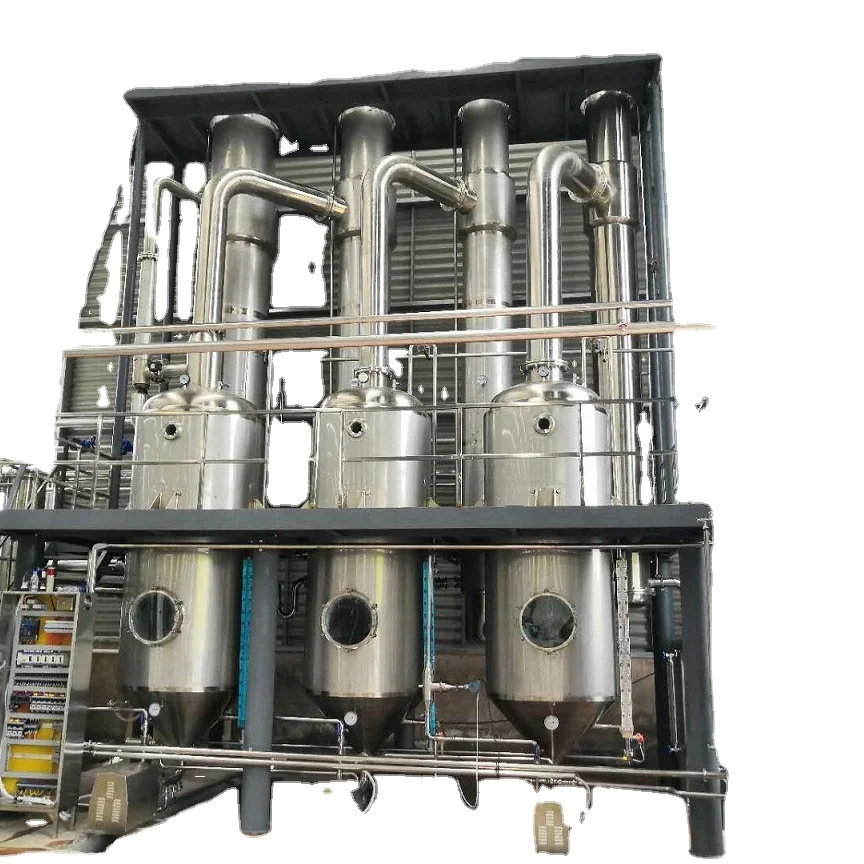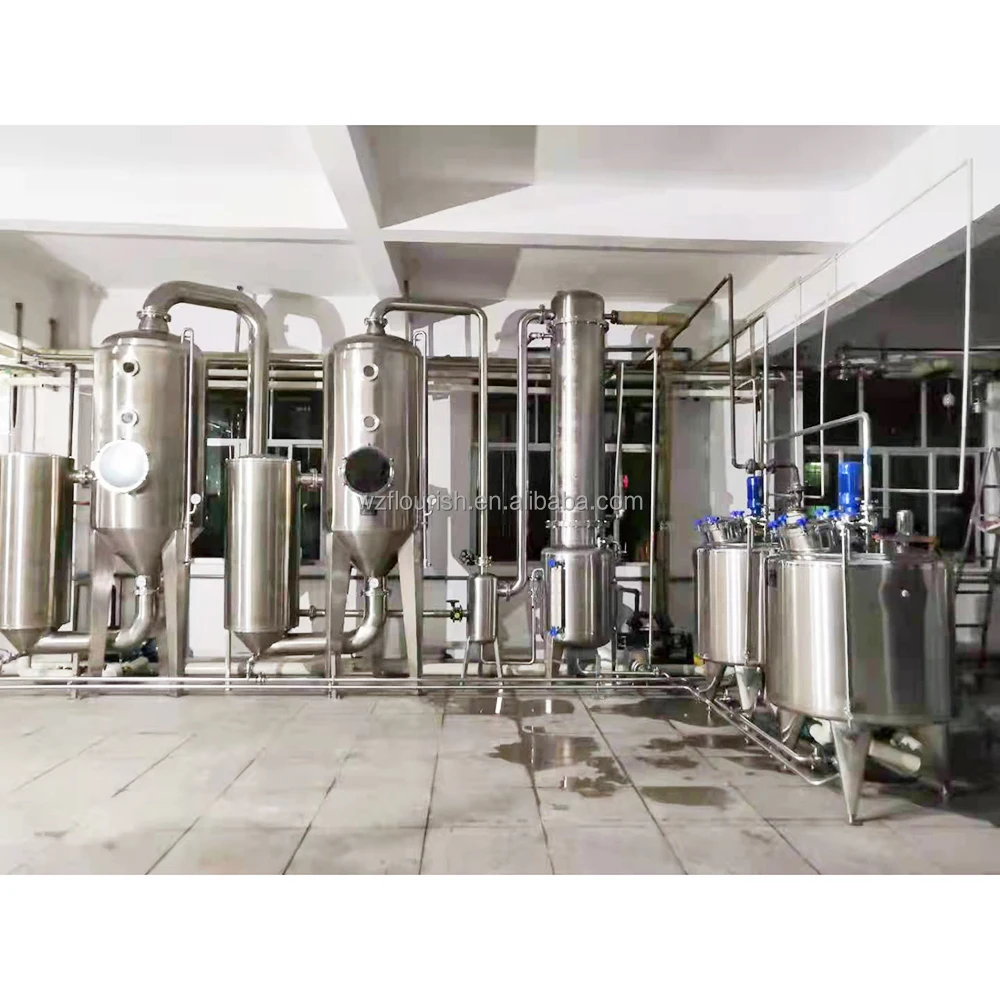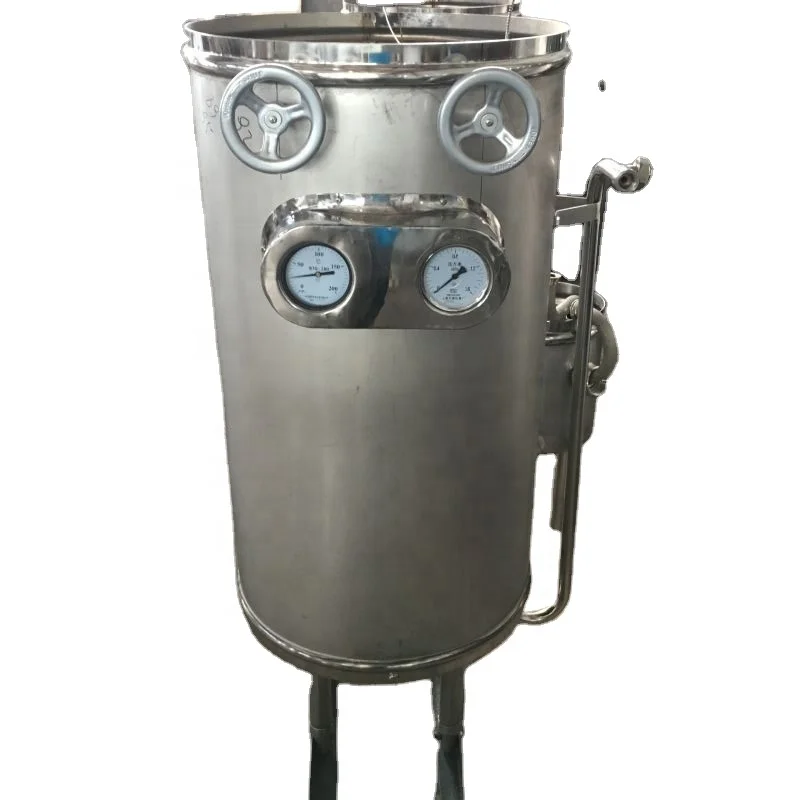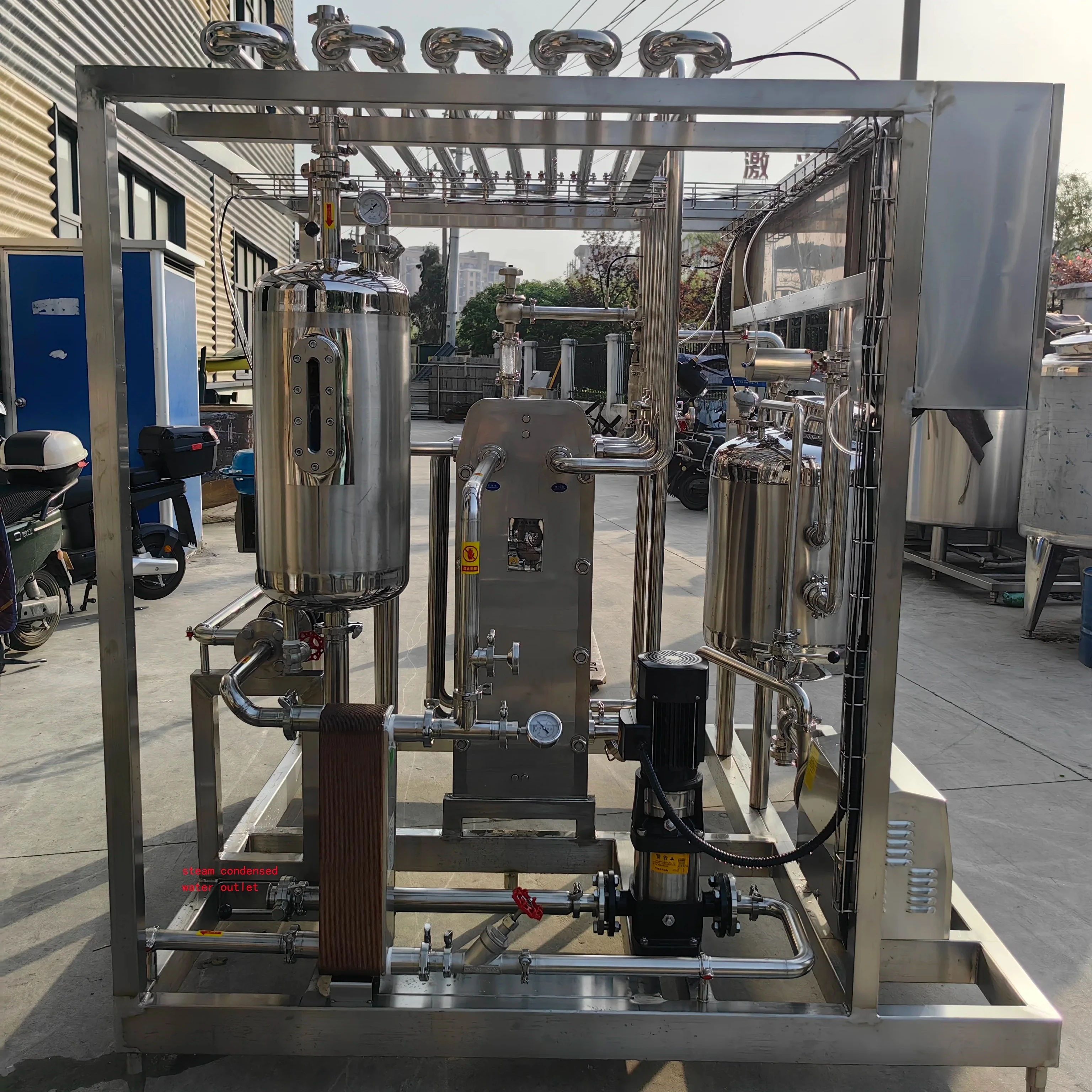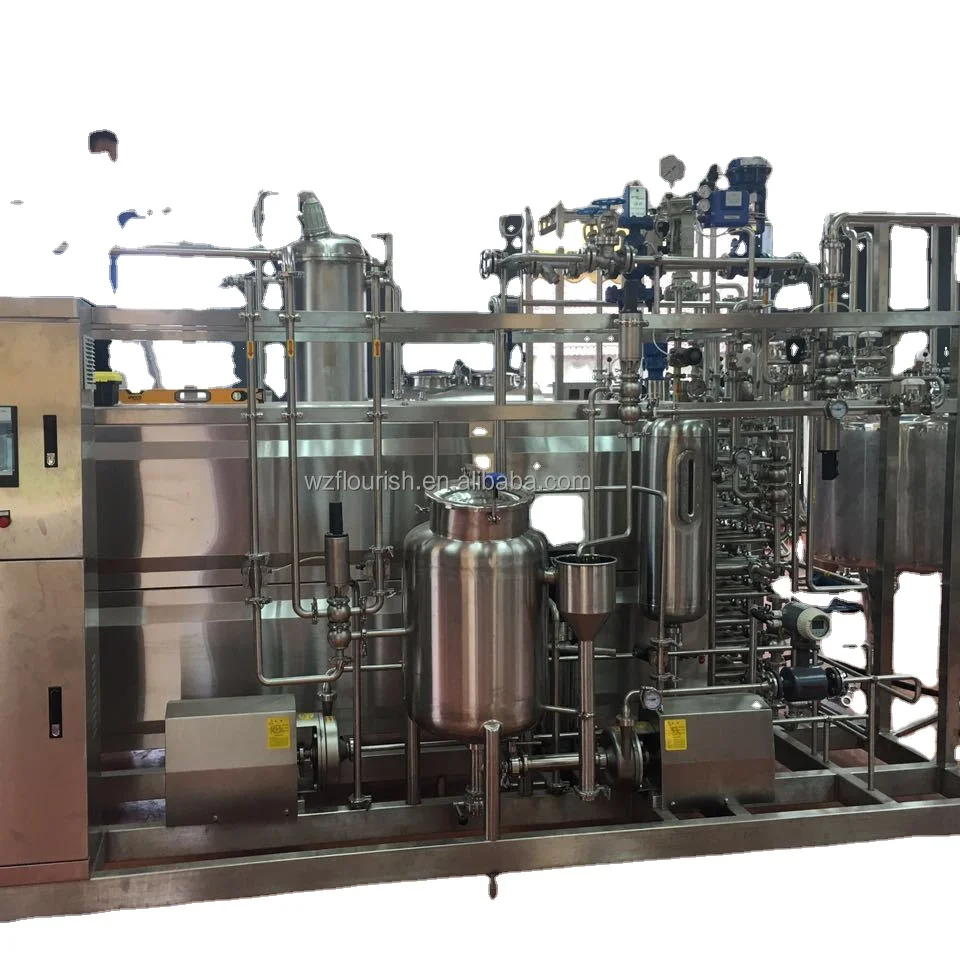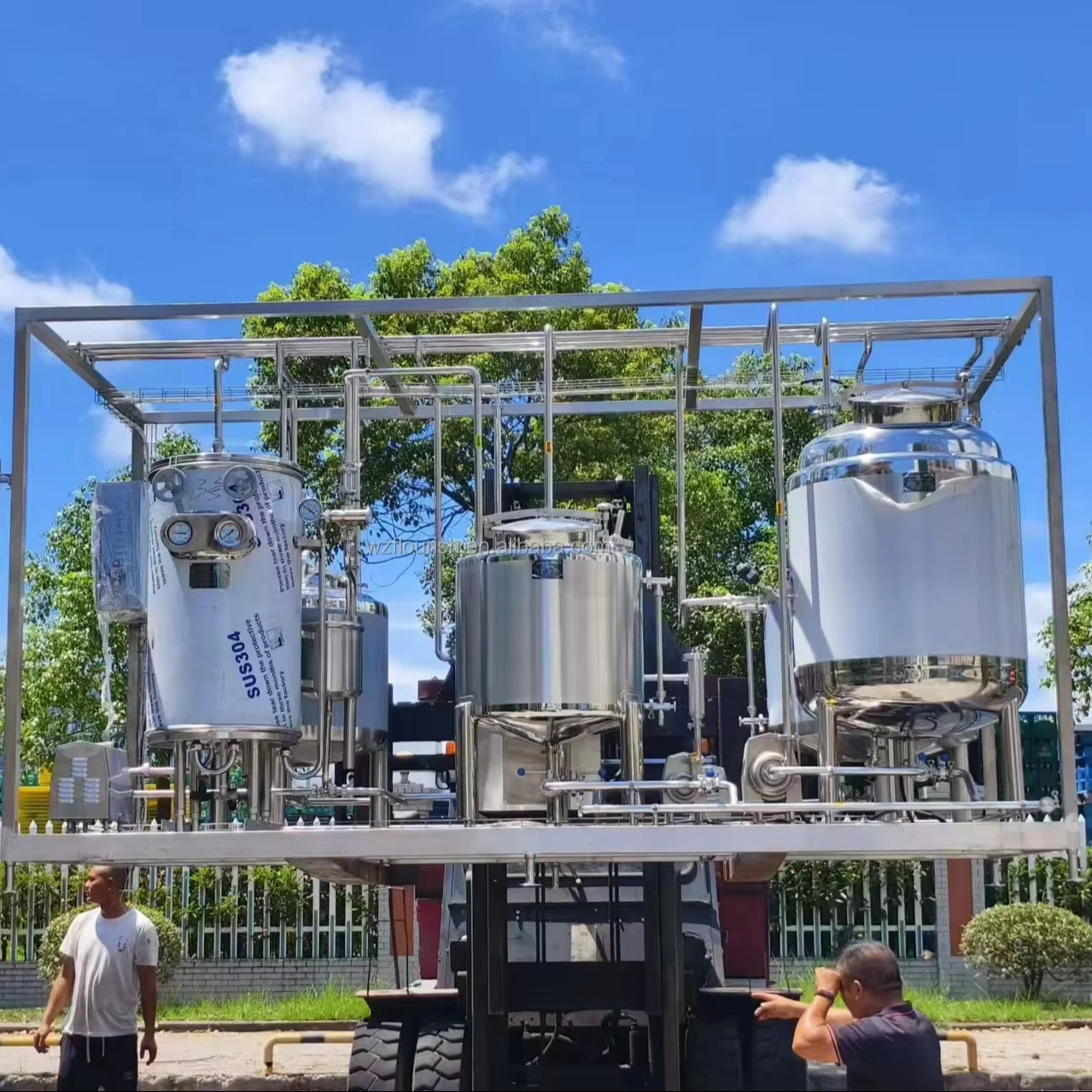ABOUT
Wenzhou Vince Machinery Science Co., Ltd. was established in early 1980s. Our company covers an area of 6500 square meters and is an independent legal representative firm, possessing rich economic technology strength. Our company is a high tech enterprise and plays an important role in national dairy, foodstuff, pharmacy and machinery industries. We are a beverage machinery supplier.
Since the establishment, our company has mainly engaged in dairy products, foodstuff, beverage machinery, bean products, yellow wine, medicines and fermentation projects. What's more, our company supplies a complete sequence services in manufacturing, installation, test and personnel train, as well as the whole direction service design and consulting service on product project construction or enlargement artistic distribution engineering sets budget.
PRODUCTS
Juice Evaporation: A Key Process in Food Manufacturing
Juice evaporation is a crucial process in the food manufacturing industry, playing a vital role in transforming fresh fruit juices into concentrated forms. This technique offers a multitude of benefits, including extended shelf life, reduced transportation costs, and enhanced flavor and consistency. The process involves removing a significant portion of water from the juice, resulting in a concentrated product that can be easily stored and transported. Understanding the intricacies of juice evaporation is essential for manufacturers seeking to produce high-quality, shelf-stable juice products.
Types of Juice Evaporation
There are several methods of juice evaporation employed in the food industry, each with its own advantages and disadvantages. Two common types include:
1. Vacuum Evaporation
Vacuum evaporation is a widely used method that utilizes reduced pressure to lower the boiling point of the juice. This process involves heating the juice in a vacuum chamber, allowing water to evaporate at a lower temperature, preserving flavor and nutrients. The vapor is then condensed and collected, while the concentrated juice remains in the chamber. Vacuum evaporation is particularly suitable for heat-sensitive juices, as it minimizes the risk of nutrient degradation.
2. Forced Circulation Evaporation
Forced circulation evaporation involves pumping the juice through a heated tube or chamber, where heat is transferred from the heated surface to the juice. The hot juice is then passed through a separator, where the vapor is removed and condensed. This method offers efficient heat transfer and is suitable for processing large volumes of juice. However, it may require higher temperatures, potentially leading to some nutrient loss.
Advantages of Juice Evaporation
Juice evaporation offers several significant advantages for food manufacturers, including:
1. Extended Shelf Life
By removing a portion of the water, juice evaporation increases the shelf life of the product. The reduced water content inhibits microbial growth, preventing spoilage and extending the storage time. This benefit is particularly valuable for transporting and distributing juice products over long distances.
2. Reduced Transportation Costs
Concentrated juice requires less space for storage and transportation, leading to significant cost savings. The reduced weight and volume of the product minimize transportation costs and streamline logistics. This is especially beneficial for manufacturers exporting juice products to international markets.
3. Enhanced Flavor and Consistency
Juice evaporation can enhance the flavor of the product by concentrating the natural sugars and other flavor compounds. The removal of water also increases the consistency of the juice, making it easier to handle and process.
Challenges of Juice Evaporation
While juice evaporation offers numerous benefits, it also presents some challenges, including:
1. Nutrient Loss
High temperatures used in some evaporation methods can lead to nutrient loss, particularly for heat-sensitive vitamins. Manufacturers must carefully select appropriate processing parameters to minimize nutrient degradation.
2. Equipment Costs
Evaporation equipment can be expensive, requiring significant capital investment. This factor may limit the adoption of juice evaporation by smaller manufacturers.
3. Operational Costs
The process of juice evaporation requires energy for heating and cooling, contributing to operational costs. Manufacturers need to optimize process parameters and equipment design to minimize energy consumption.
In conclusion, juice evaporation plays a critical role in the food industry, enabling manufacturers to produce concentrated, shelf-stable juice products. The process offers numerous advantages, including extended shelf life, reduced transportation costs, and enhanced flavor and consistency. However, it also presents challenges related to nutrient loss, equipment costs, and operational costs. By carefully selecting appropriate evaporation methods and optimizing process parameters, manufacturers can overcome these challenges and produce high-quality, concentrated juice products that meet consumer demand.
SUBSCRIBE
INQUIRY

